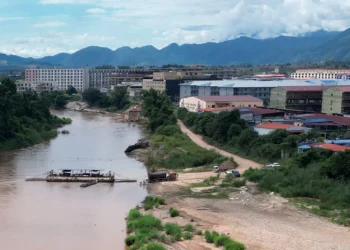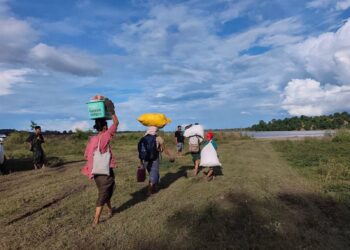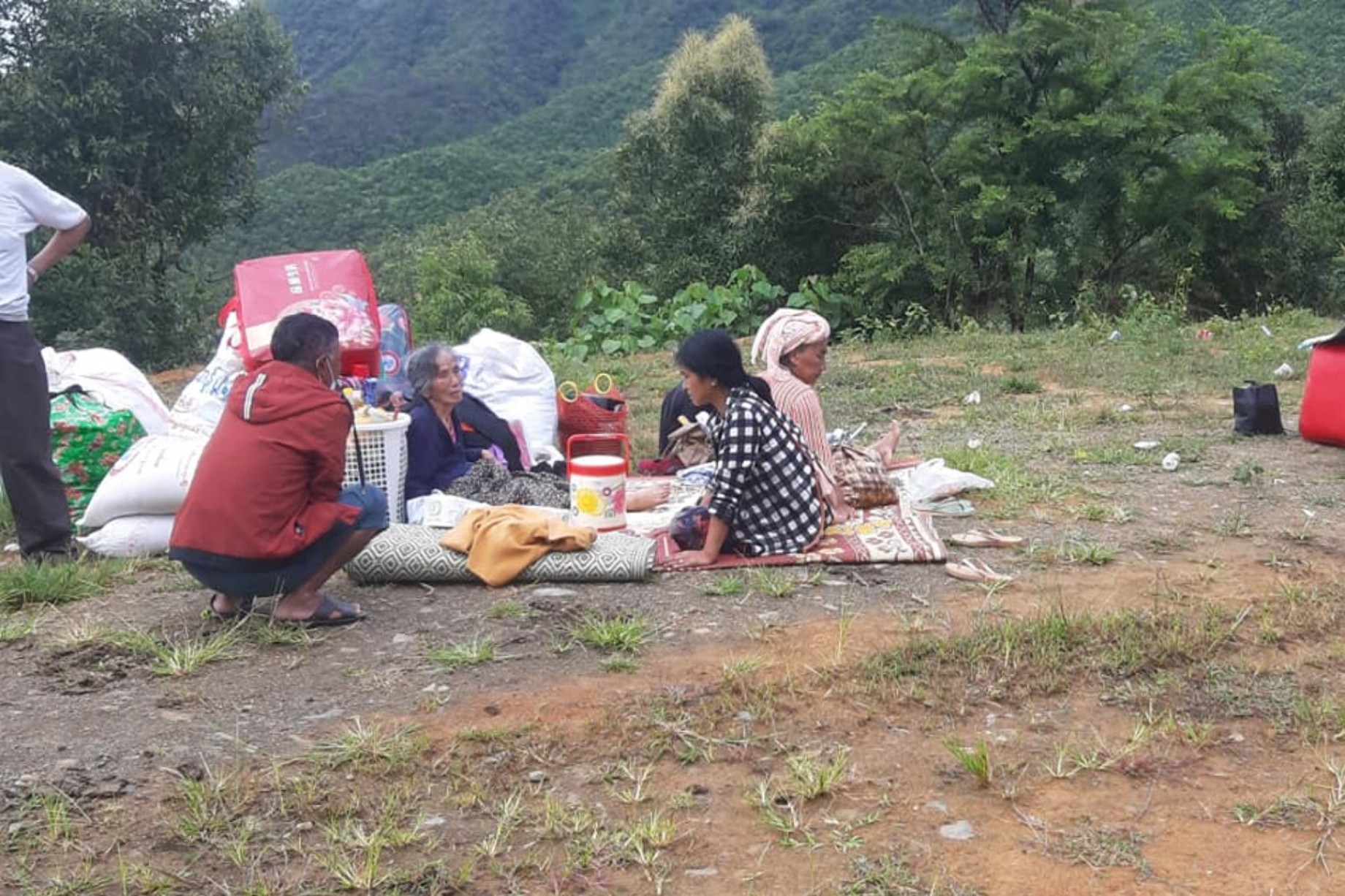
First came the sound of explosions from artillery shells landing nearby. Next the fires started to spread, tearing through neighbours’ homes. Then, Nuu Hta, a 57-year-old retired nurse, heard gunshots just outside her house in Thantlang, a small town in the north of Chin State.
She later discovered that what she had heard was junta soldiers shooting a local pastor to death as he arrived to put out the fires started by the shelling. Cum Biak Hum, 31, was found an hour after the shooting with two bullet wounds in his chest.
The soldiers had also cut off one of his fingers to steal his wedding ring, a local Baptist group said, adding that they also stole his watch.
A little over one month since Thantlang was shelled, the town is largely deserted, with the majority of its residents now spread across dozens of villages along the mountainous border with India, where they are struggling to survive.
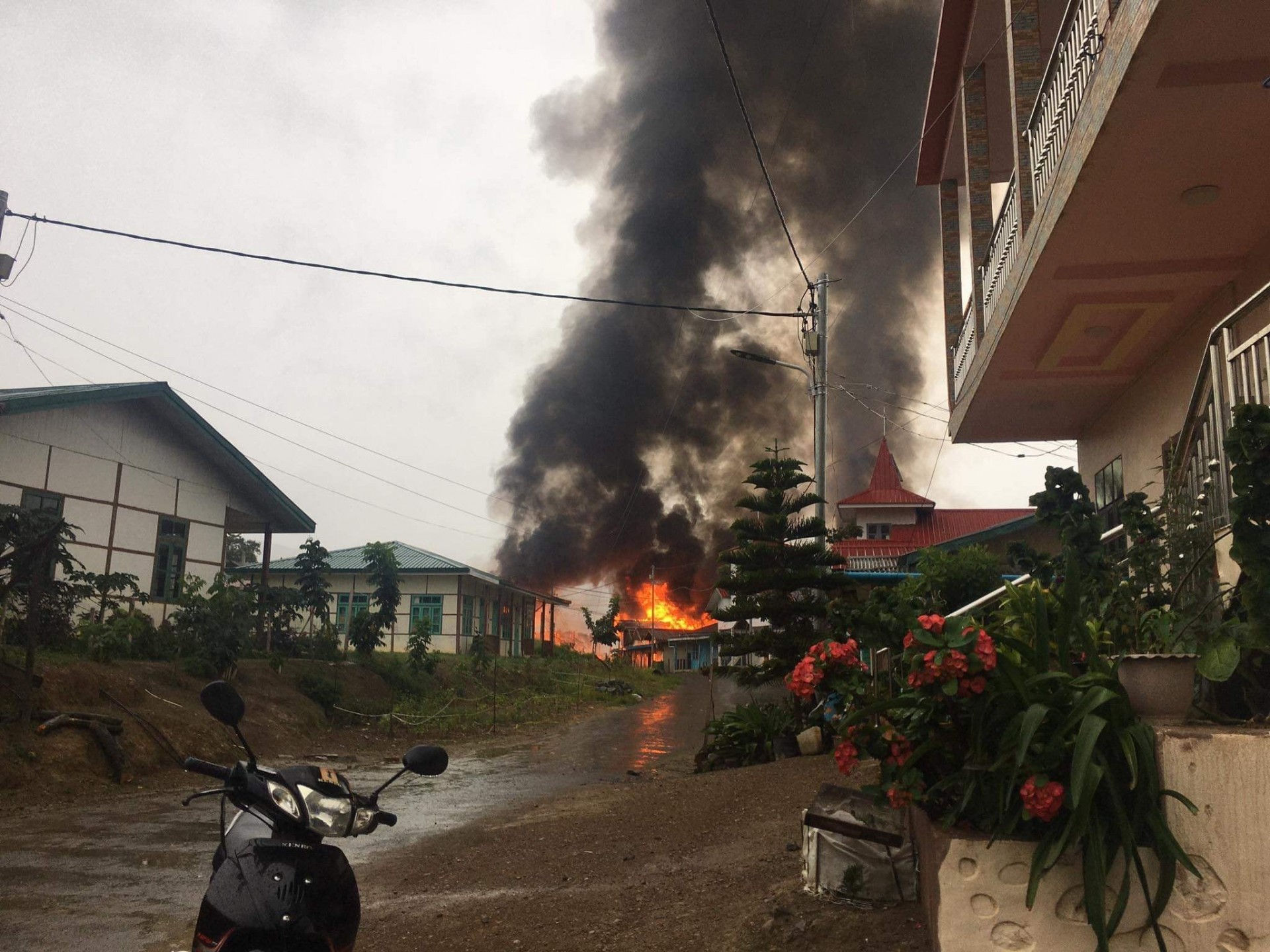
“Nobody dares to live in the town anymore,” said Nuu Hta, who is renting a simple wooden house in one of the villages. While she has been able to find shelter, she is struggling for other basic necessities and has been living off of a dwindling supply of chickpeas brought from home.
“Even water is scarce here,” she said. “We’re living on solar power, so we only get electricity between 7pm and 9pm and we don’t have much light.”
Nobody dares to live in the town anymore – a displaced Thantlang local
Local aid workers say the situation is becoming dire for an estimated 7,225 people displaced from Thantlang. They are appealing for donations for food supplies and to offer emergency medical care.
Salai Lian, an officer from the Thantlang Placement Affairs Committee (TPAC), said Chin people living abroad have given money towards relief efforts and local social services groups are also providing support. But it’s not enough.
“We are going to be in really big trouble if we go for just one more month without getting any help,” he told Myanmar Now.
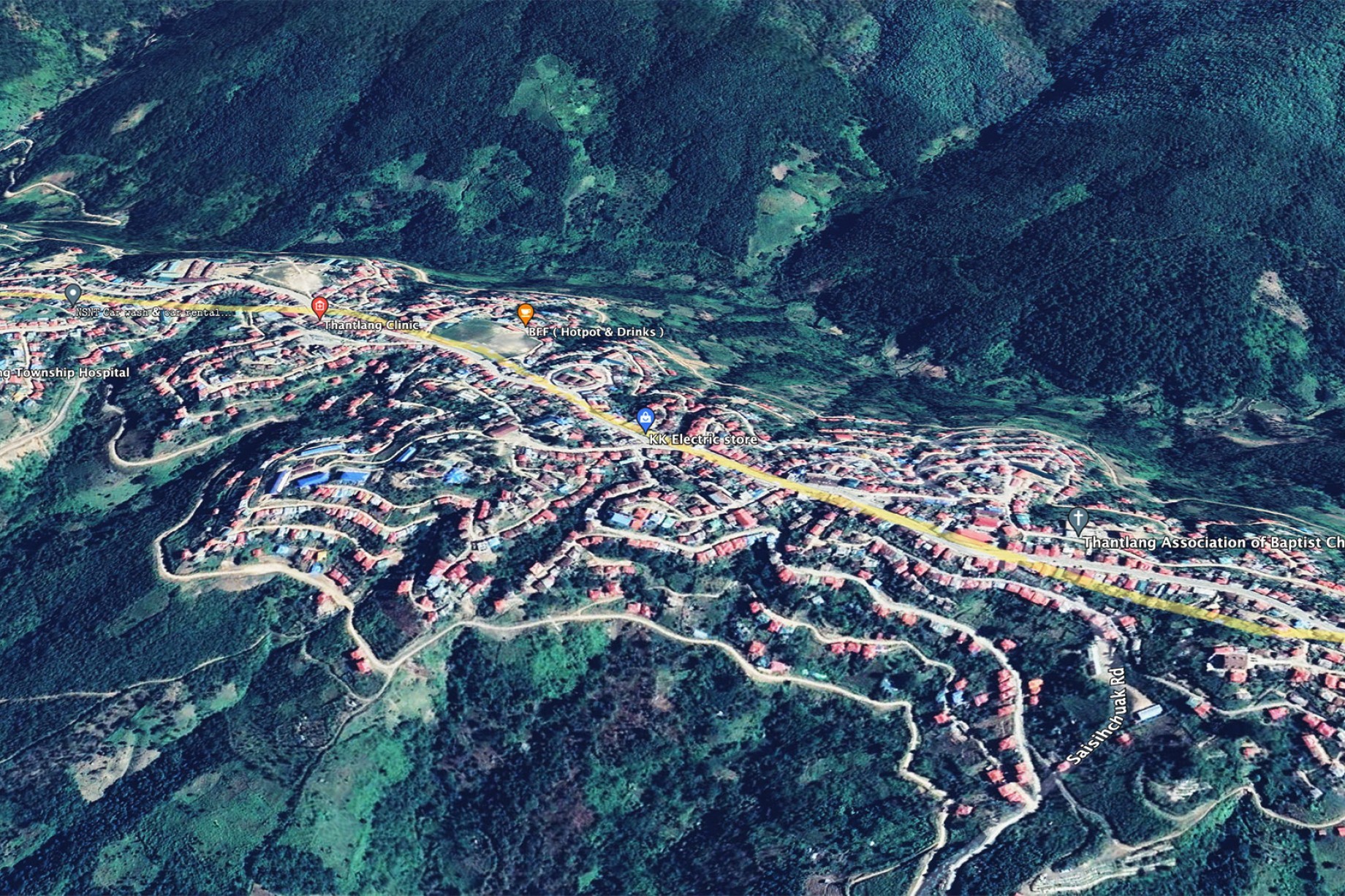
As is the case with Nuu Hta, shelter is not an immediate issue for the displaced people, who are staying at churches, schools, and in other people’s houses, he said.
Another 4,500 people from other areas of Thantlang Township have fled clashes and taken shelter across the border in the Indian state of Mizoram, he added.
Clashes began in Thantlang early last month. On September 9 two junta soldiers were killed and four civilians were injured when the local branch of the Chinland Defence Force (CDF) ambushed junta forces.
Another clash took place on September 18, just before the military began shelling the town.
Salai Lian said more than 100 displaced people staying in the Vailam mountain range in Thantlang Township have contracted Covid-19.
“Despite the strict Covid-19 rules in place in the Vailam hills, many have contracted the virus and we still don’t know how that happened,” he said. Those infected are unable to quarantine and are still staying together with their families, he added.
A team of doctors taking part in the Civil Disobedience Movement is helping the infected people but are in need of medication. No one has died but some are showing severe symptoms with worryingly low blood oxygen levels, Salai Lian added.
As of late September, there were only around 30 civilians left in the town of Thantlang. A number of others have made trips back to pick up supplies, but they do so at the risk of being killed by occupying junta soldiers.
On September 30, two were killed and two others injured when soldiers shot up a vehicle full of Thantlang residents as they returned from a meeting about helping people displaced from the town.
A week later, soldiers shot and injured a man who was returning to the town on his motorcycle to bring food to his sister, who among those who stayed behind and has an intellectual disability.
After this incident, on October 13, community and religious leaders went to meet with military officials to try to negotiate a way for residents to safely make trips back to Thantlang.
A number of people travelling in around 40 vehicles were then able to return to collect supplies. Nuu Hta made the journey to collect blankets, kitchen utensils, and coats. But the military allowed the trips only while issuing an ominous warning.
“The tactical officer said that they never told us to not come back and that we were always welcome to come back, but that they couldn’t stop shooting as long as there were resistance fighters,” said one of the local leaders who went to negotiate.
The situation in Northwestern Burma today has some echoes of the situation in Rakhine State in 2017 before the military offensive against the Rohingya – Burma Campaign UK
While the junta has remained largely silent on the mounting number of reported war crimes committed by its forces in Thantlang and the wider region, the case of the murdered pastor drew enough international attention to warrant a denial from its spokesperson.
Zaw Min Tun said in a statement a few days after the killing that Cum Biak Hum was hit by a stray bullet. “We are still investigating the death of the pastor,” he said.
Resistance fighters in Chin and the neighbouring regions expect the junta to launch massive offensives in the coming weeks, and human rights groups fear this will involve scorched earth attacks against civilians.
“The situation in Northwestern Burma today has some echoes of the situation in Rakhine State in 2017 before the military offensive against the Rohingya,” Anna Roberts, Executive Director of the Burma Campaign UK pressure group, said in a statement on Wednesday.
Her group is urging the British government to convene a meeting on the situation at the UN Security Council.
Thousands of troops have been deployed to upper Myanmar since the start of this month. Over 80 military vehicles, including three tanks, arrived in the Chin town of Mindat from Magway Region’s Pakokku Township on October 13. A convoy of over 40 vehicles from Kalay in Sagaing Region arrived at Falam Township the day before.
My heart sinks every time I think about when I’ll be able to go home. I keep praying to God for this to end – a displaced Thantlang local
Resistance fighters have sought to hold off the advance by targeting the convoys with guerrilla-style ambushes. Last week they said they destroyed half of the vehicles in a convoy that was heading for the state capital Hakha.
With all signs pointing to a severe escalation in violence, Nuu Hta wonders how she is going to survive. The food she brought from home is running out, and her neighbours in the village hosting her can only give her so much.
“My heart sinks every time I think about when I’ll be able to go home,” she said. “I keep praying to God for this to end.”
Source: Myanmar Now





